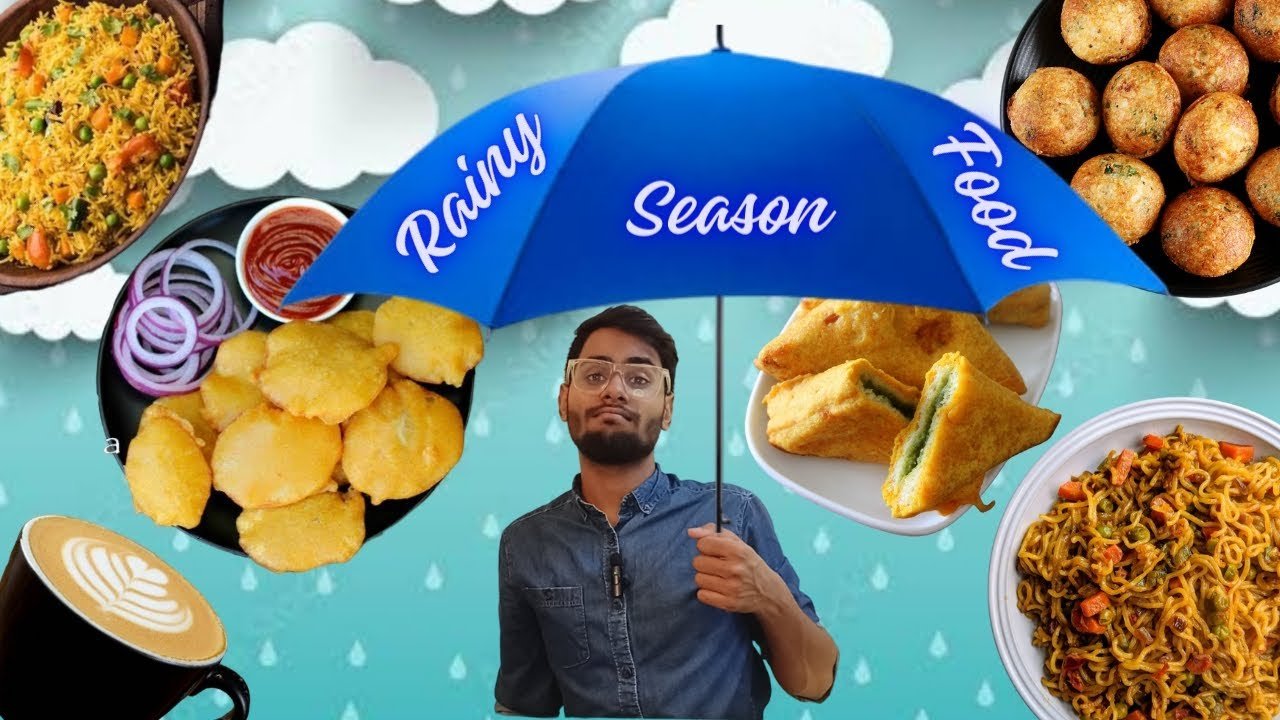Street Foods to Avoid During the Rainy Season
As the rainy season sets in, bringing a welcome respite from the sweltering heat, it also ushers in a set of unique challenges, especially when it comes to street food. While the vibrant street food scene can be tempting, the increased humidity and moisture can create a breeding ground for bacteria and spoilage. Here’s a guide to the street foods you might want to steer clear of when the weather turns wet.
Fried Snacks
Popular fried snacks like samosas, pakoras, and bhajis are a street food favorite, but they can be problematic during rainy weather. The increased moisture in the air can make these foods soggy and less crispy, and they are more prone to absorbing excess oil, which can make them heavy and unappetizing. Additionally, improperly stored fried foods can develop harmful bacteria more quickly in the humid conditions, leading to potential foodborne illnesses.
Raw or Undercooked Meats
Street vendors often serve a variety of meats, from skewered kebabs to meat-filled buns. During the rainy season, raw or undercooked meats are particularly risky. The humidity can cause meat to spoil faster, and if not cooked or stored properly, it can lead to serious food poisoning. Always opt for street vendors who prioritize cleanliness and proper cooking practices.
Fresh Fruits and Juices
While fresh fruit can be a refreshing treat, it’s best to avoid street vendor offerings during the rainy season. High humidity levels can accelerate the spoilage of fruits, making them more susceptible to bacterial contamination. Fresh fruit juices, in particular, can become a breeding ground for bacteria if not prepared and stored in sanitary conditions. Stick to fruits you can peel yourself or buy from reputable sources.
Chilled Desserts
Desserts such as ice creams, kulfis, and other chilled treats may seem tempting during rainy weather, but they can pose health risks. Increased moisture can lead to quicker spoilage of dairy-based products, and improperly stored or handled chilled desserts can cause foodborne illnesses. If you crave something sweet, opt for hot or baked options instead.
Seafood
Street vendors often offer a range of seafood items like fish and prawns, which can be particularly risky in humid, rainy weather. Seafood is highly perishable and can spoil quickly if not kept at the right temperature. The increased moisture in the air can exacerbate the risk of contamination, so it’s wise to avoid seafood from street vendors during the rainy season.
Puffed and Crispy Items
Puffed rice and crispy snacks are usually light and airy, but in damp conditions, they can quickly lose their crunchiness and become mushy. They also tend to absorb moisture, which can lead to an unpleasant texture and potential spoilage. If you’re craving something crispy, it’s better to opt for items freshly made and consumed immediately.
Dishes with Sauces and Dressings
Street food dishes that come with sauces or dressings, such as sandwiches or wraps, can be problematic in the rainy season. The moisture from the rain can affect the consistency of the sauces, making them prone to bacterial growth. Additionally, these foods can become soggy and less appealing, so it’s better to avoid them until the weather clears up.
Conclusion
The rainy season brings with it a unique set of challenges for street food lovers. Increased humidity and moisture can affect the quality and safety of many popular street foods. To enjoy the best of street food while staying safe, stick to freshly prepared items, avoid those prone to spoilage, and always choose vendors who maintain high hygiene standards. By being mindful of these factors, you can continue to enjoy the vibrant street food scene without compromising your health.
